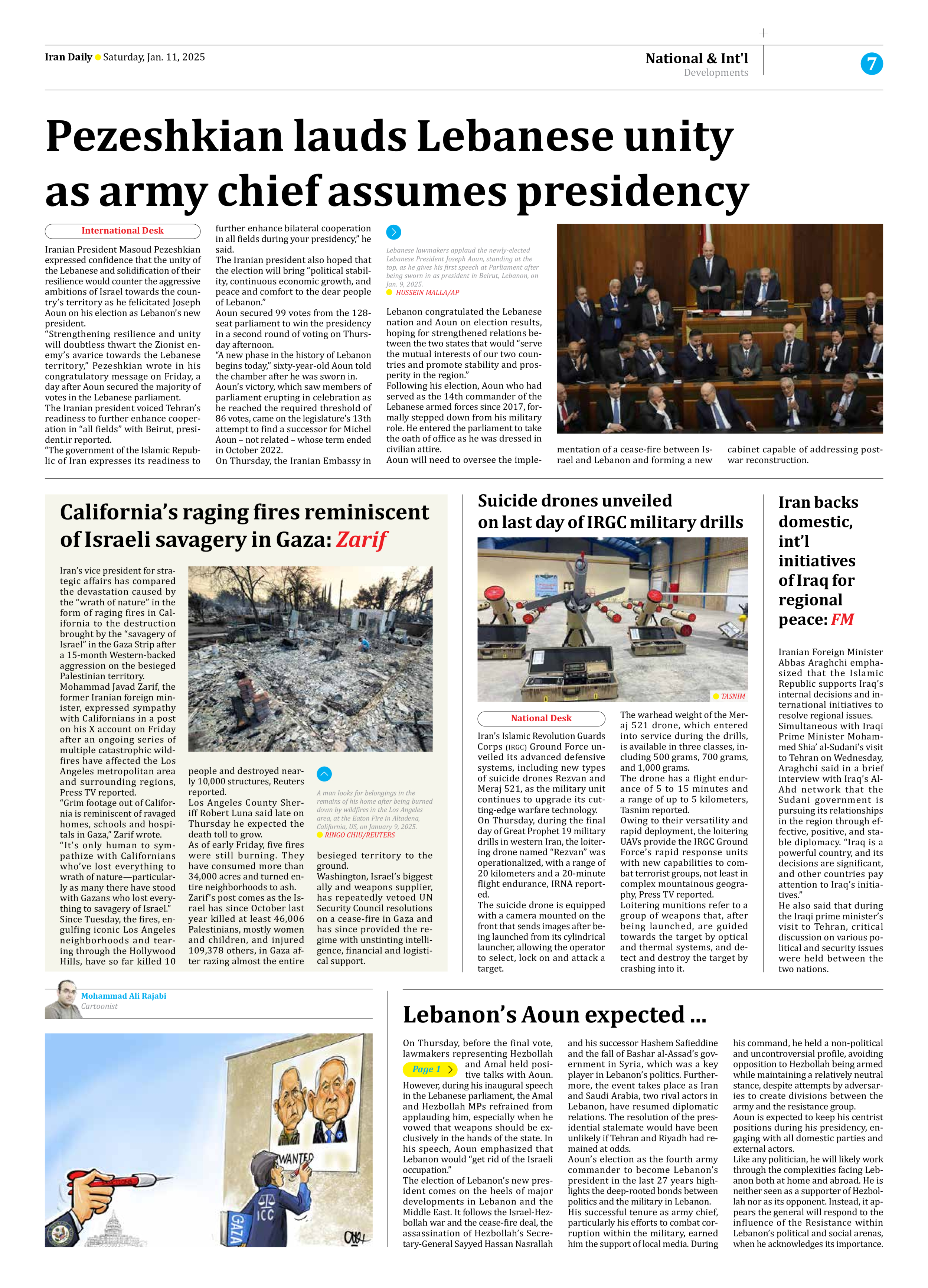
Lebanon’s Aoun expected ...
Page 1
On Thursday, before the final vote, lawmakers representing Hezbollah and Amal held positive talks with Aoun. However, during his inaugural speech in the Lebanese parliament, the Amal and Hezbollah MPs refrained from applauding him, especially when he vowed that weapons should be exclusively in the hands of the state. In his speech, Aoun emphasized that Lebanon would “get rid of the Israeli occupation.”
The election of Lebanon’s new president comes on the heels of major developments in Lebanon and the Middle East. It follows the Israel-Hezbollah war and the cease-fire deal, the assassination of Hezbollah’s Secretary-General Sayyed Hassan Nasrallah and his successor Hashem Safieddine and the fall of Bashar al-Assad’s government in Syria, which was a key player in Lebanon’s politics. Furthermore, the event takes place as Iran and Saudi Arabia, two rival actors in Lebanon, have resumed diplomatic relations. The resolution of the presidential stalemate would have been unlikely if Tehran and Riyadh had remained at odds.
Aoun’s election as the fourth army commander to become Lebanon’s president in the last 27 years highlights the deep-rooted bonds between politics and the military in Lebanon.
His successful tenure as army chief, particularly his efforts to combat corruption within the military, earned him the support of local media. During his command, he held a non-political and uncontroversial profile, avoiding opposition to Hezbollah being armed while maintaining a relatively neutral stance, despite attempts by adversaries to create divisions between the army and the resistance group.
Aoun is expected to keep his centrist positions during his presidency, engaging with all domestic parties and external actors.
Like any politician, he will likely work through the complexities facing Lebanon both at home and abroad. He is neither seen as a supporter of Hezbollah nor as its opponent. Instead, it appears the general will respond to the influence of the Resistance within Lebanon’s political and social arenas, when he acknowledges its importance.







